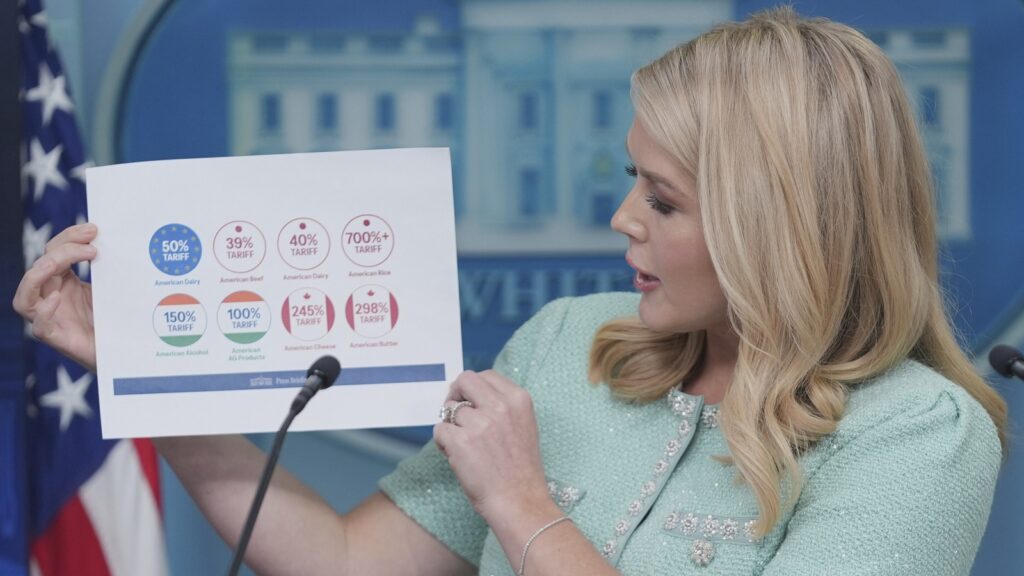The U S Criticizes India’s High Tariffs: 150% Duty on American Alcohol Sparks Trade Tensions. has criticized India’s high tariffs, highlighting a 150% duty on American alcohol as a major trade barrier. This has intensified trade tensions between the two nations, with calls for tariff reductions. The dispute raises concerns over fair market access and bilateral trade relations.

The United States has raised concerns over India’s high tariffs on American goods, particularly the 150% import duty imposed on alcoholic beverages. This issue has become a significant point of contention in trade discussions between the two countries, as Washington pushes for fairer market access for its exporters. The dispute highlights the broader trade tensions between the world’s largest democracies, as they navigate economic policies that impact businesses on both sides.
Canada has been ripping off the United States of America
American trade officials have repeatedly expressed their dissatisfaction with India’s high tariffs on imported products,canada particularly those affecting the alcohol industry. According to US trade representatives, India’s 150% duty on American whiskey and other alcoholic beverages significantly limits market access and makes it difficult for US exporters to compete in India’s rapidly growing consumer market.
The US argues that these tariffs create an uneven playing field, making American products prohibitively expensive for Indian consumers. Trade officials in Washington believe that such high duties are a form of protectionism, aimed at shielding domestic industries from international competition rather than fostering fair trade practices. As a result, American businesses looking to expand into India face substantial barriers, reducing opportunities for growth and economic cooperation.
India’s Perspective on Tariffs
From India’s standpoint, high import 150% duties serve multiple purposes. The government argues that these tariffs are necessary to support domestic industries, generate revenue, and discourage excessive alcohol consumption. India has a strong domestic liquor industry, with a thriving market for both traditional and modern spirits. Protecting local manufacturers from foreign competition is seen as essential for preserving jobs and sustaining economic growth.
Moreover, India points out that its taxation policies on alcohol are influenced by state governments, which have autonomy over liquor regulations. With each state imposing its own levies and restrictions, the final price of imported alcohol often becomes significantly higher than the base import duty. This further complicates trade negotiations, as the Indian central government has limited control over state-level taxation policies.
The issue of high tariffs on alcohol is not an isolated concern but rather part of a larger set of trade disputes between the US and India. Washington has criticized New Delhi for imposing high duties on various American goods, including motorcycles, dairy products, and medical devices. The US sees these policies as protectionist measures that prevent American businesses from competing fairly in the Indian market.
In response, India has defended its tariff structures by citing its development needs and economic strategies. The country maintains that tariffs are essential for maintaining a balance between international trade and domestic economic growth. Despite these differences, both nations continue to engage in dialogue to address trade imbalances and improve market access for each other’s industries.
To ease trade tensions, both the US and India have been engaging in negotiations aimed at reducing tariffs and expanding economic cooperation. Bilateral trade talks have focused on creating a more balanced trade relationship while addressing concerns from both sides. In recent years, there have been discussions about lowering tariffs on select American products in exchange for better access to US 150% markets for Indian exports.
Additionally, the Indian government has taken steps to liberalize certain sectors and reduce trade barriers. However, progress has been slow, as policy changes in India require careful consideration of domestic economic interests and political factors. US 150% officials remain hopeful that continued engagement will lead to fairer trade policies that benefit businesses in both countries.
The ongoing trade discussions between the US 150% and India have broader implications for global trade. As two major economies, their trade policies influence international market dynamics and set precedents for other nations. Resolving tariff disputes could enhance economic cooperation, increase bilateral investments, and strengthen diplomatic ties.
For American businesses, lower tariffs on products like alcohol could open up new revenue streams and expand market opportunities in India. Similarly, Indian companies seeking to export goods to the US 150% could benefit from reduced trade restrictions and improved access to American consumers.
While disagreements over tariffs remain, both countries recognize the importance of maintaining a strong trade partnership. Continued negotiations and diplomatic efforts will be crucial in shaping the future of US-India economic relations, with the goal of fostering a fair and mutually beneficial trade environment.
Read Also….Ukraine ready for ceasefire with Russia, hopes Putin will agree, says Trump. 2025















 Categories
Categories









